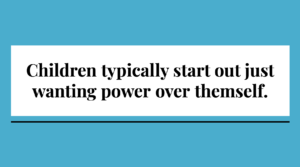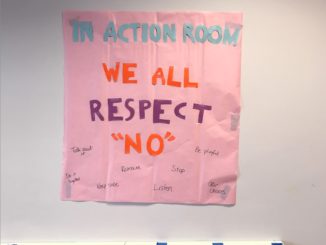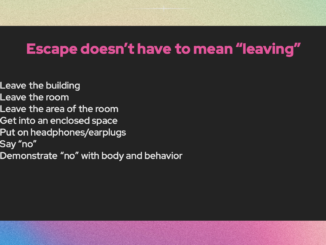There’s a quote that I’ve seen on the internet that goes like this. “Sometimes people use ‘respect’ to mean ‘treating someone like a person’, and sometimes they use ‘respect’ to mean ‘treating someone like an authority’.
So sometimes people who are used to being treated like an authority say, ‘If you won’t respect me, I won’t respect you,’ and they mean, ‘If you won’t treat me like an authority, I won’t treat you like a person.’ And they think they’re being fair, but they aren’t, and it’s not okay.”
I think power is sometimes like that, too. Sometimes people use “power” to mean “control over others”, and sometimes people use “power” to mean “control over yourself”.
In my experience, at the beginning, children are not typically seeking control over others. They’re just seeking control over themself. They just want autonomy. That’s the kind of power that they’re looking for.

That might change, the more years they’re subjected to powerful control from other people in their life–traumas, punishments, systems that are hurting them, that they’re antagonized by. They might begin seeking control over other people–maybe younger peers or siblings, maybe peers in their class, maybe teammates in a sport, maybe even a pet. Or maybe they seek to exert control over their occupational therapist, since she seems like she might be chill – you could say they might seem more controlling toward friendly adults, since they know that they’re already on safe ground with them and they can express that need without fearing for their safety.
Other kids might seem like they’re seeking control over others when they’re struggling with high anxiety, perfectionism, or even sensory issues–since others around you doing chaotic things can be very visually distracting, or very noisy, or too much dizzying movement, or things like that.
But for the majority of typical kids, the main thing—the first thing—is just self-autonomy power. And even for the kids with other complicating factors, self-autonomy power can go a long way toward helping reduce some of the struggle for control in the other areas, too.
How do we give them self-autonomy power? I’m glad you asked…



